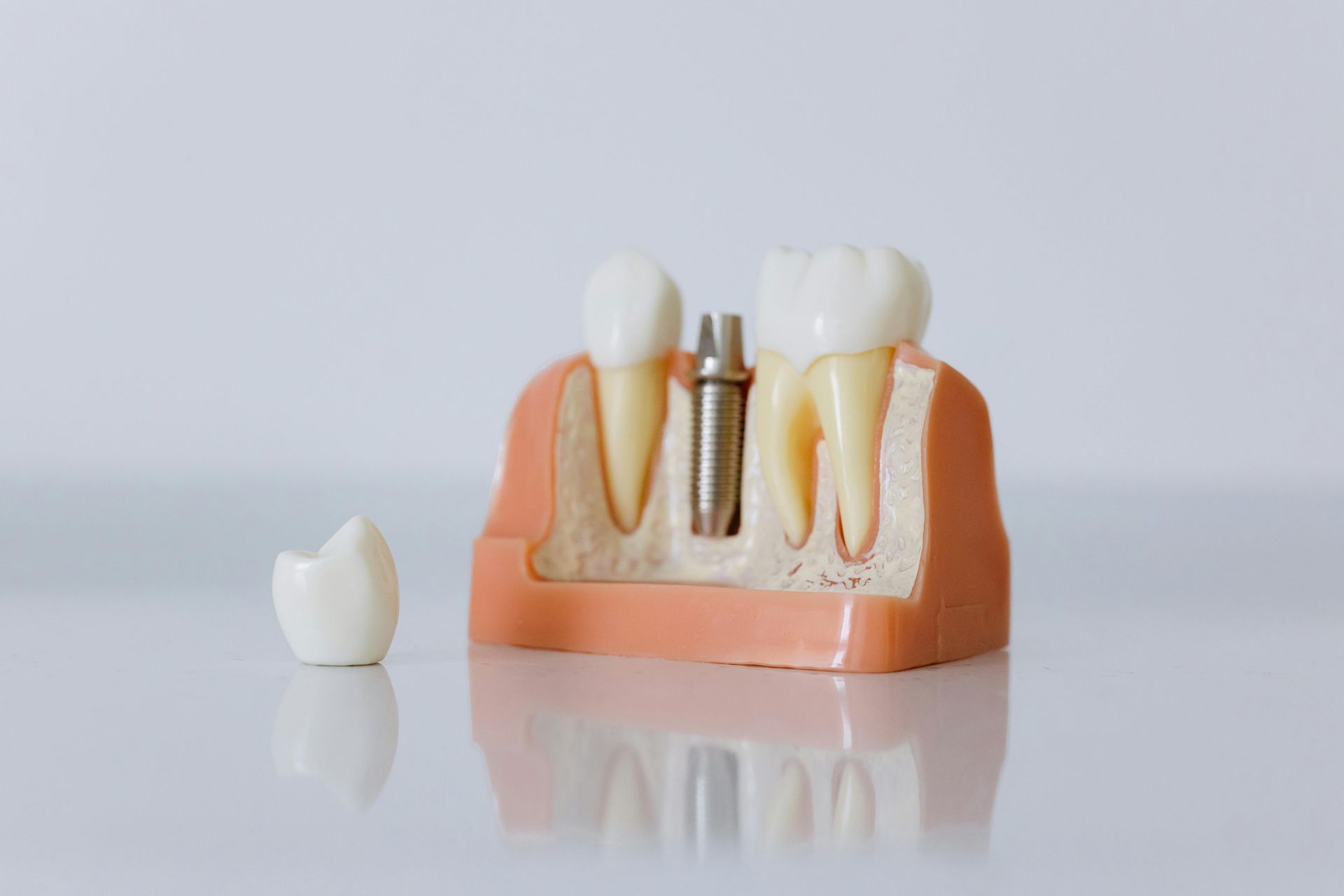
Root Canals in London
Struggling with a painful or damaged tooth? Root canals in London can save your tooth and ease your discomfort. At our London dental practice, we use this treatment, also called endodontic therapy, to preserve teeth affected by deep decay, disease, or injury, avoiding the need for extraction.
Root Canals in Ealing
Struggling with a painful or damaged tooth? Root canals in Ealing can save your tooth and ease your discomfort. At our Ealing dental practice, we use this treatment, also called endodontic therapy, to preserve teeth affected by deep decay, disease, or injury, avoiding the need for extraction.
Why Choose a Dentist in Ealing for Root Canals?
Root canals in Ealing are a reliable way to save a damaged tooth. Our skilled Ealing dentists use advanced techniques to make the process smooth and stress-free. We know tooth pain can feel overwhelming, so we explain every step, ensuring you feel confident and cared for.
What Is a Root Canal?
What to Expect During Your Visit
Aftercare & Healthy Habits
What Is a Root Canal?
A root canal is a dental treatment used to save a tooth that’s badly decayed, infected, or injured—rather than removing it. During the procedure, the infected pulp inside the tooth is carefully removed and the space is cleaned, disinfected, and sealed.
Root canals in Ealing are more comfortable and successful than ever thanks to advanced techniques and gentle care. For example, Priya, a local student, came in with a constant throbbing toothache. A root canal relieved the pain and saved her tooth, helping her focus on studies again—without discomfort.
If you’re experiencing sensitivity, swelling, or toothache, a consultation with a trusted dentist in Ealing can help determine if root canal treatment is right for you.


Your root canal treatment typically happens over two to three appointments, depending on the severity of the issue and the tooth being treated. Here’s what the process involves:
- Consultation: Your London dentist will examine the affected tooth, take X-rays, and explain the treatment plan.
- Treatment: Using local anaesthetic, the dentist will remove the infected pulp, clean the inside of the tooth, and shape the canal.
- Sealing: The tooth is filled and, if necessary, fitted with a crown to protect it from future damage.
Each treatment session lasts around 60–90 minutes. We’ll use a rubber dam to isolate the area and ensure a clean, dry field throughout the procedure. Our team is experienced in making root canal treatment smooth and stress-free, especially for nervous patients.
What to Expect During Your Appointment


Aftercare & Ongoing Visits
Wearing dentures for the first time can take some adjustment, but with the right care, they can provide years of confident use. Here’s how to care for your new smile:
- Stick to soft foods initially and gradually reintroduce harder textures.
- Clean your dentures daily using a soft brush and denture cleanser—not regular toothpaste.
- Soak them overnight to prevent warping and keep them moist.
- Rinse your mouth with warm salt water if you've had extractions.
- Visit your dentist in Ealing regularly for fit checks and professional cleaning.
If your dentures begin to feel loose or uncomfortable, don’t ignore it. You may need a reline or replacement. With proper maintenance and guidance, your dentures will continue to look and feel great for years.
Call Now & Book your appointment
Simple Booking
Easy online, phone or WhatsApp appointment scheduling.
Friendly Experts
Skilled, caring team focused on your comfort and care.
Modern & Calm
State-of-the-art clinic in a relaxed, welcoming space.
Results That Last
Personalised treatments designed for natural, long-term results.
NEED TO KNOW
Appointments
Root canal treatment typically requires several visits to a dentist in Ealing:
- Consultation: Your Ealing dentist examines your teeth, takes X-rays, and may provide initial pain relief.
- Treatment: We clean, shape, and disinfect the root canal, using a small rubber sheet (called a rubber dam) to keep the area dry.
- Final steps: We fill and restore the tooth. If the tooth is significantly damaged, a crown may be needed to protect it.
- After treatment, the tooth may feel tender when biting, but this usually settles quickly. Contact your Ealing dentist if you have concerns.
How Long It Takes
- Consultations take 30–45 minutes.
- Each root canal appointment lasts about 60–90 minutes.
You May Be Asked About
- Your dental and medical history.
- Any pain or symptoms, like sensitivity or swelling.
Before Your Appointment
No special preparation is needed.
After Your Appointment
- Maintain good oral hygiene with brushing and flossing.
- Avoid hard or chewy foods for a few days.
- Take simple painkillers like paracetamol if needed.
- Attend follow-up appointments, especially for a crown if recommended.
Your Trusted Dentist in Ealing
Book Your Dental Appointment in Ealing Today
Ready to restore your smile? Our expert Ealing dentists craft partial and full dentures in Ealing to fit your life perfectly. Contact us today to book a consultation with a trusted dentist in Ealing and rediscover your confidence.
FAQs
How many visits does root canal treatment typically require?
Most treatments take two to three appointments, depending on tooth complexity. Each visit usually lasts 60–90 minutes. A dentist in Ealing will plan your schedule to minimise discomfort and ensure proper healing.
Will I feel pain during the procedure?
No, the procedure is pain-free thanks to local anaesthetic. In fact, root canals are designed to relieve the infection causing your pain—not add to it. Mild tenderness afterward is normal and usually resolves quickly.
How long do treated teeth usually last?
With good care and a proper crown or restoration, a treated tooth can last 10–15 years or even longer—often a lifetime.
What are the risks or complications of root canal therapy?
Though rare, complications such as instrument breakage, persistent infection, or discoloration can occur. Modern techniques and experienced dentists in Ealing help minimise these risks and manage issues effectively.
What symptoms indicate I might need a root canal?
Common signs include severe toothache (especially at night), sensitivity to hot or cold, swelling, darkening of the tooth, or a bad taste in your mouth. If you're experiencing these symptoms, book a check-up soon.
What should I expect after a root canal?
Most patients resume daily activities the same day. Mild discomfort can be managed with over‑the‑counter pain relief. Avoid chewing hard foods on the treated side until fully restored and attend follow-up appointments as advised.










